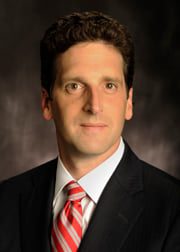NYDFS considers transitional licenses for small digital-currency firms, startups
Benjamin Lawsky, superintendent of the New York State Department of Financial Services (NYDFS), announced Sunday that his department may grant transitional licenses to small digital-currency companies and startups to let them grow before facing the full burden of new rules, reports Bloomberg.
Lawsky’s remarks in a speech at the Money 20/20 conference in Las Vegas comes after the first draft of New York’s specialized BitLicense drew significant criticism from Bitcoin firms, which argued that BitLicense was a heavy-handed approach that would suppress innovation in the burgeoning financial technology industry, reports the Wall Street Journal.
“One issue that we heard about consistently throughout the entire comment period is a concern about the compliance costs of regulation on new or fledgling virtual currency enterprises,” Lawsky said, according to the newspaper.
“There has to be a way for startups to start up and play by the rules without getting crushed by huge compliance costs,” Lawsky said at the conference, according to Bloomberg. “To that point, we are considering creating a special type of ‘Transitional BitLicense.’”
Bloomberg reported that Lawsky said the transitional license would let certain small businesses and startups focused on digital currencies operate in a more flexible framework for a certain time period, when they would be subject to tailored examinations. In weighing applications, Lawsky said the NYDFS may consider aspects including the scope of the enterprise, the amount of money handled, and risk to consumers.
According to the Wall Street Journal, Lawsky said his department is “also considering designating a small group of specialized examiners” who can gain a “greater understanding of the unique challenges smaller companies and startups face.” Lawsky also suggested that digital currency-oriented startups be allowed to outsource their compliance work to specialized providers instead of having large numbers of compliance officers on their own.
“We have faced similar issues among the smaller, community banks we regulate,” Lawsky said, according to Bloomberg. “We recognize that if a financial firm has 12 employees – and nine of them are compliance officers – that is not a winning business model.”
Lawsky added that “we will not waver in our commitment to protecting consumers and preventing illicit activity” and stated that “any firm that engages in misconduct will faces significant penalties,” reports the Wall Street Journal.













